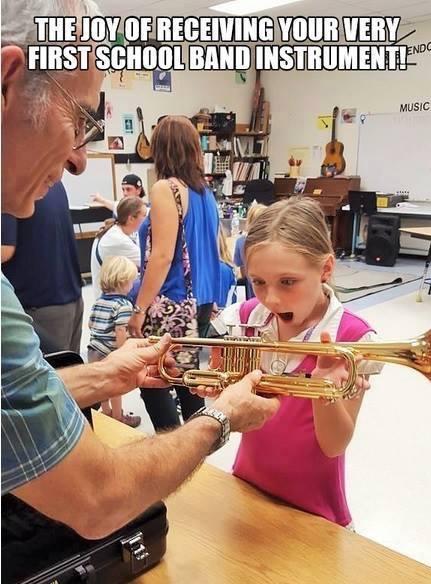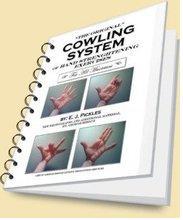Still MORE music education statistics, data, links and videos:
[Below] Here is WHY music education statistics are collected:
Music education stats just keep coming! Here are a representative sample, presented by category:
BUILDING OF CHARACTER & SELF CONFIDENCE:
REDUCING INSTANCES OF SUBSTANCE ABUSE:
===========================================

BENEFITS TO OTHER SUBJECTS:
“Students with coursework/experience in music performance and music appreciation scored higher on the SAT: students in music performance scored 57 points higher on the verbal and 41 points higher on the math, and students in music appreciation scored 63 points higher on verbal and 44 points higher on the math, than did students with no arts participation”. — College-Bound Seniors National Report: Profile of SAT Program Test Takers. Princeton, NJ: The College Entrance Examination Board, 2001
“A study of 237 second grade children used piano keyboard training and newly designed math software to demonstrate improvement in math skills. The group scored 27% higher on proportional math and fractions tests than children that used only the math software. “— Graziano, Amy, Matthew Peterson, and Gordon Shaw, "Enhanced learning of proportional math through music training and spatial-temporal training." Neurological Research 21 (March 1999).
“A research team exploring the link between music and intelligence reported that music training is far superior to computer instruction in dramatically enhancing children's abstract reasoning skills, the skills necessary for learning math and science.” — Shaw, Rauscher, Levine, Wright, Dennis and Newcomb, "Music training causes long-term enhancement of preschool children's spatial-temporal reasoning," Neurological Research, Vol. 19, February 1997
"A McGill University study found that pattern recognition and mental representation scores improved significantly for students given piano instruction over a three-year period. They also found that self-esteem and musical skills measures improved for the students given piano instruction." - Costa-Giomi, E. (1998, April). "The McGill Piano Project: Effects of three years of piano instruction on children's cognitive abilities, academic achievement, and self-esteem." - Paper presented at the meeting of the Music Educators National Conference, Phoenix, AZ
"Researchers found that lessons on songbells (a standard classroom instrument) led to significant improvement of spatial-temporal scores for three- and four-year-olds.
~ Gromko, J.E., and Poorman, A.S. (1998) The effect of music training on preschooler's spatial-temporal task performance." - Journal of Research in Music Education, 46, 173-181
===========================================
BENEFITS TO OVERALL HEALTH:
"Playing music increases human growth hormone [HgH] production among active older Americans. A study following 130 people over two 10-week periods measured participants' levels of HgH. The findings revealed that the test group who took group keyboard lessons showed significantly higher levels of HgH than the control group people who did not make music.
~(University of Miami)
[ed. note: How's THAT for some "music education statistics"?]
MUSIC EDUCATION STATISTICS on "STRESS REDUCTION":
"Music making helps the elderly ..There were significant decreases in anxiety, depression, and loneliness following keyboard lessons. These are factors that are critical in coping with stress, stimulating the immune system, and in improved health. Results also show significant increases in human growth hormones following the same group keyboard lessons. (Human growth hormone is implicated in aches and pains.)"
~ Dr. Frederick Tims, reported in AMC Music News, June 2, 1999
"Playing a musical instrument can reverse stress at the molecular level, according to studies conducted by Loma Linda University School of Medicine and Applied Biosystems (as published in Medical Science Monitor) "Making music can help reduce job burnout and improve your mood, according to a study exposing 112 long-term care workers to six recreational music-making sessions of group drumming and keyboard accompaniment. (as published in "Advances in Mind-Body Medicine")
===========================================
BUILDING OF CHARACTER & SELF CONFIDENCE:
*An Auburn University study found significant increases in overall self-concept of at-risk children participating in an arts program that included music, movement, dramatics and art, as measured by the Piers-Harris Children's Self-Concept Scale."
- N.H. Barry, Project ARISE: Meeting the needs of disadvantaged students through the arts, Auburn University, 1992
"According to music education statistics compiled by the National Data Resource Center, students who can be classified as “disruptive” (based on factors such as frequent skipping of classes, times in trouble, in-school suspensions, disciplinary reasons given, arrests, and drop-outs) total 12.14 percent of the total school population. In contrast, only 8.08 percent of students involved in music classes meet the same criteria as “disruptive.”
— Based on data from the NELS:88 (National Education Longitudinal Study), second follow-up, 1992
===========================================
REDUCING INSTANCES OF SUBSTANCE ABUSE:
"The National Institute on Drug Abuse issued its own list of factors thought to reduce the risk of teens' involvement with illicit substances. Among them are strong family bonds, parental monitoring of children's activities, success in school and involvement in school and religious organizations. Officials admit none of the proposed remedies is foolproof. For example, the recent survey documented that Texas students in vocational and distributive education classes are more likely to use alcohol, tobacco and marijuana than their schoolmates. But the flip side of that finding was this: 'Secondary students who participated in band or orchestra reported the lowest lifetime and current use of all substances except smokeless tobacco,' the survey said'
- from a Houston Chronicle article in 2002
[The above, I feel, is one of the most important music education statistics of all.]
See the HOBART SHAKESPEAREANS show how music is vital to ALL education:
Sir Kenneth Robinson on: "Creativity vs. the Current Educational System":
THIS "SECRET METHOD" TO INSTRUMENTAL MASTERY HAS BEEN "HIDDEN IN PLAIN SIGHT" FOR OVER A CENTURY!
But now, it has been REDISCOVERED! And YOU can enjoy the amazing benefits of it:
This Method Book Can ABSOLUTELY "Supercharge" YOUR Practice Routine - on ANY Instrument!
Find out more, or:
Buy It NOW On Amazon [Physical Paperback]:
or:
Get the PDF by clicking here:
"I’ve been playing a long time and really want to take my speed and accuracy to the next level! The first lesson...WOW! I’m a believer!!" ~ Will Suddeth, March 2020
And the accolades continue: David Grisman [above] uses "The Original" Cowling System:
DOWNLOAD "THE ORIGINAL COWLING SYSTEM©" -- PDF "E-BOOK" - 70 pages [$22.50 via PAYPAL secure]
THE SOFTCOVER PHYSICAL BOOK IS BACK IN PRINT! - Available at Amazon.
And still more [actual and unsolicited] rave reviews for "The Original" Cowling System:
-----------------
FROM A VIOLINIST:
"The Cowling System © is a set of 12 exercises designed to increase the flexibility and strength of the hand, wrist, and fingers.
"I bought the course in 1978 and have found them to be invaluable.
"I've kept them all these years and still use them to warm up with before playing."
~ Richard Barton posted on VIOLINIST.COM
-----------------
FROM A BASS PLAYER:
?"My fingers actually DO what my brain tells them to do, WITHOUT getting confused."
~ Anthony Jerome Smith, 35-year veteran bass player.
-----------------
FROM A PIANIST:
"In 1976, my teacher gave me his copy of all the exercises, whereupon I made xeroxed pages to put in a binder.
"My teacher was amazed at my progress that in a year I could play, for example, the prelude #17 of Chopin!
~ "RPN58" (from a pianists' discussion board in England, 2006)
-----------------
FROM A GUITARIST:
"I was introduced to the Cowling System © in the 1980's by a violinist in his seventies, who had amazing dexterity on his instrument for HIS age.
"Through the use of the COWLING SYSTEM ©, I went from "amateur" to an "A" level in music in a very short number of years.
"I have been using the exercises continuously since my friend gave them to me and believe me - THEY WORK."
~ Don Wills Guitarist, Great Britain
-----------------
FROM A VIOLINIST:
"I must say I am highly delighted with the way my fingering has improved since I commenced your hand strengthening exercises.
"Recently, I became very depressed about my playing and almost decided to give it up, but now I feel it's a pleasure, thanks to the Cowling System. ©"
~ "THE VIOLINIST" Magazine, December, 1924
I'd love to see YOUR testimonial on this list! If you really do "THE ORIGINAL" COWLING SYSTEM © of Hand Strengthening Exercises", you CAN master and truly enjoy your music!








